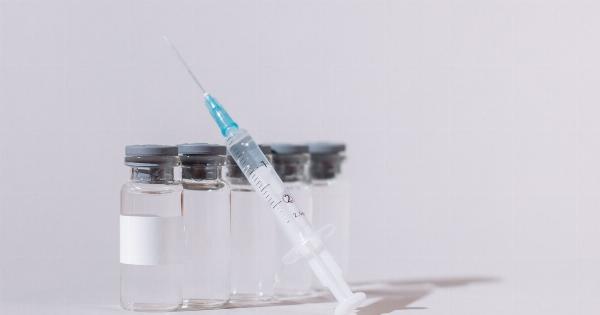The immune system is a complex network of cells, tissues, and organs that work together to defend the body against harmful pathogens and disease-causing microorganisms.
A strong immune system is essential for maintaining overall health and well-being, as it plays a crucial role in preventing and fighting off infections, viruses, and other illnesses. While genetics and medical interventions certainly play a role in immune function, research has shown that lifestyle changes can significantly enhance and strengthen the immune system.
In today’s fast-paced world, many individuals find themselves exposed to various stressors that can weaken their immune systems.
Poor diet, lack of exercise, chronic stress, inadequate sleep, and smoking are just a few factors that can compromise the immune system. Thankfully, making positive lifestyle changes can have a profound impact on immune function, providing individuals with a natural way to boost their defenses and improve their overall health.
Diet: Fueling the Immune System
One of the most influential lifestyle factors that can affect immune function is diet. A well-balanced diet rich in nutrients is essential for supporting a strong immune system.
Certain vitamins and minerals play a crucial role in immune cell function and overall immunological health.
Vitamin C: This powerful antioxidant is known for its immune-boosting properties. It supports the production of white blood cells, which are essential for fighting off infections.
Citrus fruits, red bell peppers, broccoli, and kiwi are excellent sources of vitamin C.
Vitamin D: Often referred to as the sunshine vitamin, vitamin D is crucial for immune health. It helps regulate the immune system and has been linked to a lower risk of respiratory infections.
Foods like fatty fish, fortified dairy products, and egg yolks contain vitamin D, but the body can also produce it naturally through sun exposure.
Zinc: Zinc is an essential mineral that supports immune cell development and function. It can be found in foods like lean meat, poultry, seafood, beans, nuts, and seeds.
Probiotics: These beneficial bacteria promote a healthy gut microbiome, which plays a significant role in overall immune function. Yogurt, kefir, sauerkraut, and kimchi are excellent dietary sources of probiotics.
Antioxidant-rich foods: Antioxidants help protect cells from damage caused by free radicals, which can weaken the immune system. Include foods like berries, leafy greens, nuts, and seeds in your diet to boost your antioxidant intake.
The Impact of Exercise on Immune Function
Regular physical activity is not only beneficial for cardiovascular health and weight management but also plays a vital role in strengthening the immune system.
Engaging in moderate-intensity exercises, such as brisk walking, swimming, or cycling, can enhance immune function by improving circulation and promoting the efficient movement of immune cells throughout the body.
Exercise has been shown to increase the production of macrophages, a type of immune cell that acts as the body’s first line of defense against harmful pathogens.
Additionally, it can help reduce stress by releasing feel-good hormones called endorphins, which have been linked to improved immune function.
The Role of Stress Management
Chronic stress can have a negative impact on immune function, making individuals more susceptible to infections and diseases. High levels of stress hormones, such as cortisol, can suppress immune activity, leaving the body vulnerable to pathogens.
Adopting effective stress management techniques is crucial for strengthening the immune system. Practices such as meditation, deep breathing exercises, yoga, and spending time in nature can help reduce stress levels and promote relaxation.
Engaging in enjoyable activities and maintaining a positive mindset are equally essential in combating stress and supporting a healthy immune system.
Quality Sleep for Optimal Immune Health
Adequate sleep is crucial for maintaining a robust immune system. During sleep, the body repairs and regenerates immune cells, strengthening the overall immune response.
Lack of sleep can lead to a decrease in immune cells and antibody production, making individuals more susceptible to infections.
It is recommended that adults aim for 7-9 hours of quality sleep each night.
Establishing a regular sleep schedule, creating a comfortable sleep environment, and practicing good sleep hygiene, such as avoiding electronic devices before bed, can help promote better sleep and support immune health.
Say No to Smoking
Smoking cigarettes or exposure to secondhand smoke can have detrimental effects on the immune system. The chemicals present in tobacco smoke can impair immune cell function, making it harder for the body to fight off infections.
Additionally, smoking damages the respiratory tract, making individuals more susceptible to respiratory infections and viruses.
Quitting smoking or avoiding exposure to secondhand smoke is one of the most impactful lifestyle changes one can make to strengthen their immune system.
The benefits of quitting smoking extend far beyond immune health, leading to improved cardiovascular health, lowered risk of cancer, and an overall improvement in quality of life.
Additional Immune-Boosting Lifestyle Practices
In addition to the aforementioned lifestyle changes, there are other practices that can further enhance immune function:.
Hydration: Staying hydrated is crucial for maintaining optimal immune function. Water helps carry nutrients to cells and flushes out toxins. Aim to drink at least 8 glasses of water per day.
Reducing alcohol consumption: Excessive alcohol consumption can weaken the immune system and increase susceptibility to infections. Limit alcohol intake to moderate levels to support immune health.
Regular handwashing: Simple yet effective, regular handwashing helps prevent the spread of germs and reduces the risk of infections.
Social connections: Cultivating meaningful social connections and engaging in positive social interactions has been associated with improved immune system responses.
Conclusion
Incorporating positive lifestyle changes can have a profound impact on immune function, helping individuals strengthen their defenses against pathogens and diseases.
A well-balanced diet, regular exercise, stress management, quality sleep, and avoiding harmful habits like smoking are all crucial components of a healthy immune system. By adopting these lifestyle changes, individuals can boost their overall health and well-being while enhancing their immune response.































